Students will discover the innovative field of digital humanities through hearing from King's academics and PhD students working in this area. The session activities will focus on how online data about them is used. By the end of the session students will be able to identify key terminology relating to data and digital technologies; understand the role that metadata plays in online experiences; discuss opportunities for young people in the digital economy, and criticise the ways that biases are reproduced in the use of data today. Students will also find out how to get into study programmes and careers in digital humanities and related fields.
Tutors and PhD Educators
 Dr Michael Marcinkowski
Dr Michael Marcinkowski
Dr Michael Marcinkowski is Senior Lecturer in the Department of Digital Humanities, Director of Education for the Digital Futures Institute, and Pro Vice Dean for Professional Education in the Faculty of Arts and Humanities at King’s. His work focuses on socio-technical systems, education, and the intersection of literature and AI.
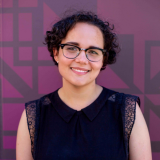 Dr Hannah Ismael
Dr Hannah Ismael
Dr Hannah Ishmael is a lecturer in Digital Culture and Race at King's and formerly the Collections and Research Manager at the Black Cultural Archives (BCA) in Brixton, London. She is a qualified archivist with expertise in the preservation and dissemination of Black British history. Her research interests lie in the intersection of archives, digital culture, and social justice, with a particular focus on the role of Black-led archives in shaping narratives of Black communities.
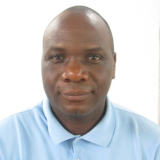 Brian Tshuma
Brian Tshuma
Brian Tshuma is a PhD researcher in the Department of Digital Humanities at King's. He is doing an ethnographic study of a mobile money platform in Zimbabwe, exploring the various ways ordinary people push back against globalist narratives of datafication in contexts of the global south. Brian is also an alternative investment lawyer with interests in futures, options, private equity or such practice areas in capital markets. Previously, he worked as a Member of Parliament in Zimbabwe, where he served on the Information, and the Budget and Finance, parliamentary portfolio committee, which superintended over the governance of data and emerging technologies, and financial markets respectively.
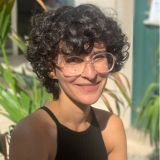 Miriam Al-Hussoma
Miriam Al-Hussoma
A LAHP PhD student in Culture, Media and Creative Industries at King’s. 'My research focuses on issues of marginalisation along gendered, classed, racial and ethnic lines in south Iraq in the context of various power dynamics and state politics. Specifically, I use an ethnographic and historical approach to examine these issues within the cultural performance industry in Iraq. Prior to starting my PhD, I worked as a data analyst and data scientist for a few tech start-ups within the market tech industry. My last role also involved advising on ethical issues relating to the company’s data solutions.'
This programme has been generously supported by the Buttinghill Foundation.
Students will develop an understanding of the increasingly important skill of coding, focusing on the Python programming language. King's PhD students will support school students through live coding sessions, where they will become familiar with Python and how it works. Students will discover what Python can be used for, perform basic tasks and use Python to view graphs, charts or images. Students will be guided through practical examples in this exciting and interactive session. They will also find out more about the possibilities of using coding in their future. In anticipation of the next workshop, students will be introduced to the concept of Artificial Intelligence (AI).
Tutors and PhD Educators
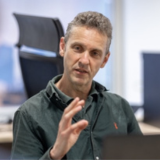 Dr Andrew King
Dr Andrew King
Dr Andrew King is a Reader in Medical Image Analysis in the Biomedical Engineering department at King’s College London. Dr King received a PhD degree in Computer Science from Warwick University in 1997 under the supervision of Professor Roland Wilson. From 2001-2005 he worked as an Assistant Professor in the Computer Science department at Mekelle University in Northern Ethiopia. Since 2006 he has worked in the Biomedical Engineering department at King’s, focusing on image analysis and machine learning in medical imaging.
Maram Alqarni
Maram Alqarni works as an academic lecturer at Imam Abdurhamn bin Faisal University in Saudi Arabia. She received her BSc degree in Biomedical Engineering from the University of Dammam in 2016, Saudi Arabia, and received her MSc in Medical Engineering & Physics from King’s College London in 2019. She is interested in medical image processing, data analysis, and machine learning. Her MSc project was focused on automatic segmentation of the left ventricle in 3-D echocardiography images and was awarded the best MSc project prize by IPEM. In 2021, she became a PhD student under the supervision of Dr Andrew King and Dr Teresa Guerrero Urbano from GSTT. Her PhD is focused on the use of Machine Learning for Brachytherapy Treatment of Prostate Cancer.
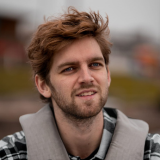 Julien Quarez
Julien Quarez
Julien Quarez, PhD Student. 'I've lived in London my whole life and I'm a 2nd year Phd Student. My research focus is on computer assisted surgery where we aim to integrate AI tools in the surgical workflow to improve patient outcomes. We work closely with clinicians to understand where their needs lies and how to help them efficiently.'
This programme has been generously supported by the Buttinghill Foundation.
Students will recap the Python programming knowledge they gained in the previous workshop before diving deeper into the world of Artificial Intelligence (AI). King's PhD students will show how the current uses of AI impact fairness and bias in society, and how we can measure fairness using Python. The PhD students will guide students through real-life medical examples of bias in AI and how it can be uncovered. Students will also gain insight into study programmes and careers using coding and AI.
Tutors and PhD Educators
 Dr Andrew King
Dr Andrew King
Dr Andrew King is a Reader in Medical Image Analysis in the Biomedical Engineering department at King’s. Dr King received a PhD degree in Computer Science from Warwick University in 1997 under the supervision of Professor Roland Wilson. From 2001-2005 he worked as an Assistant Professor in the Computer Science department at Mekelle University in Northern Ethiopia. Since 2006 he has worked in the Biomedical Engineering department at King’s, focusing on image analysis and machine learning in medical imaging.
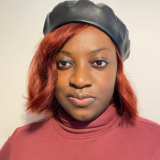 Elsa-Marie Otoo
Elsa-Marie Otoo
Elsa-Marie Otoo is a biomedical engineer. 'I love embracing new technology and applying it to medicine. I am currently a Teaching Fellow in the Department of Biomedical Engineering at King's College London. I am also a PhD candidate, and my area of research is the development of a 3D visualisation system for medical imaging and applying it in education, diagnosis, and surgery.'
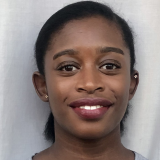 Tiarna Lee
Tiarna Lee
PhD Student. 'I’m a 3rd year PhD student at the School of Biomedical Engineering & Imaging Sciences. My research focuses on evaluating fairness and biases in Artificial Intelligence (AI) used for cardiac imaging. In my work, I have found that models trained with imbalanced datasets have a worse performance on underrepresented subjects, often minority ethnicities and females. I’m currently focusing on finding the sources of these biases so that I can then find a method to address and mitigate them.'
This programme has been generously supported by the Buttinghill Foundation.